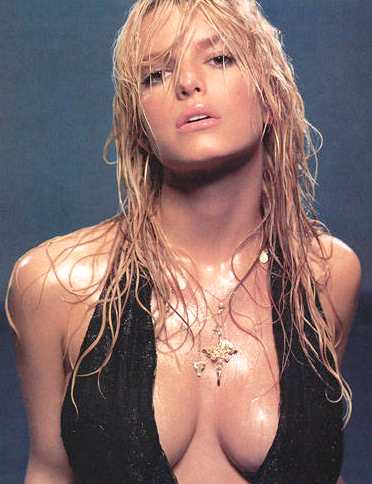These three examples aren't exactly of a piece, and the distinctions are important. Kobe and Magic's excellences are entirely unrelated to their off-court shenanigans. (Obviously we can speculate about whether the same personality traits that drive them to be great basketball players also drive them to do the bad things they do, but not only is that pure guesswork, it's also still different from the case of Eminem.) Eminem, by contrast, raps about killing his wife. It's not like he's a singer who uses "faggot" in interviews, thus allowing us to try drawing lines between his music and his personality. We have to take the whole him when we listen to his songs.

For the ladies
The case of Kobe, Magic, or John Mayer is complicated by the fact that there could plausibly be some people who don't know about their outside work, as it were. Imagine a seven-year-old Lakers fan who just loves Kobe Bryant. That child was a tiny baby when the rape happened, and you could understand it if the parents are reluctant to get into the concept of sexual assault with their seven-year-old. (And if that seven-year-old read Mayer's Playboy interview, something's wrong.)
Of course, I'm not seven. What does it say about me that I'm a fan of Kobe Bryant, that I root for him almost without thinking about this dark side? I try to comfort myself with the idea that I'm hardly unique in this. After all, Kobe didn't even lose his Nike endorsement in the fallout from the sexual assault. Obviously Nike didn't feel that people would care enough, and they apparently do not. Kobe's jersey continues to sell at the top of the heap.
The nature of "rooting for laundry" also complicates the question. You can have guys you like more or less on a team, but in general, if you root for a team, you support the players on that team. If John Mayer's antics start to annoy you, you can just drop him. No such luck with Kobe. I would almost certainly hate him if he were on any other team in the league, and I might actually wish him bodily harm if he were a Celtic. But he wears the "right" colors, so all his faults, small and large, get thrown out the window.
There are a million places this topic could go: the role of the media in showing us these bad sides (did people know Mickey Mantle was a drunk?); the chicken-egg question of whether good or bad character leads us to choose things to root for in the first place; the difference between actors, musicians, athletes, and others on the question of how much character matters; etc. This post is getting longish, though, so let's see what happens as a multiple-post matter.















